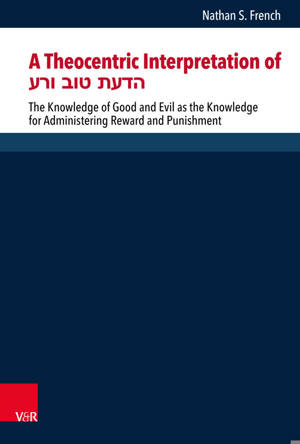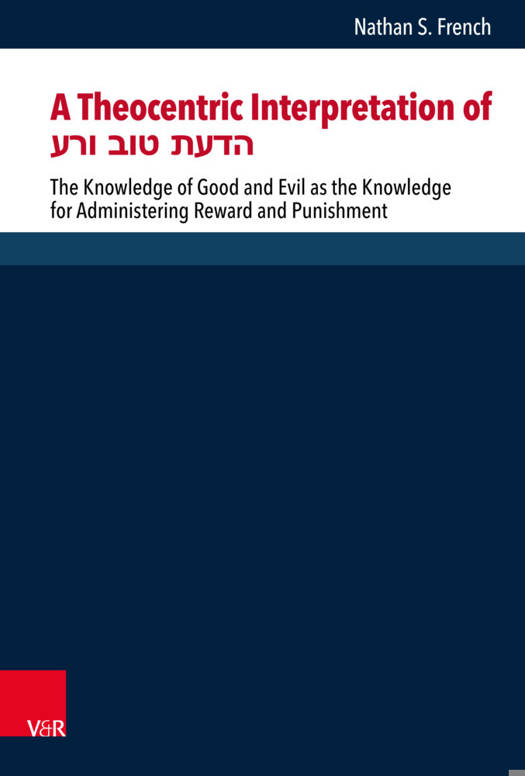
- Afhalen na 1 uur in een winkel met voorraad
- Gratis thuislevering in België vanaf € 30
- Ruim aanbod met 7 miljoen producten
- Afhalen na 1 uur in een winkel met voorraad
- Gratis thuislevering in België vanaf € 30
- Ruim aanbod met 7 miljoen producten
Zoeken
A Theocentric Interpretation of הדעת טוב ורע
The Knowledge of Good and Evil as the Knowledge for Administering Reward and Punishment
Nathan S French
Hardcover | Engels | Forschungen zur Religion und Literatur des Alten und Neuen Testaments | nr. 283
€ 118,45
+ 236 punten
Omschrijving
On a primary level, the author seeks to answer the question, what is the best interpretation of הדעת טוב ורע, "The Knowledge of Good and Evil," in Gen 2:9, 17; 3:5, and 3:22? In Gen 3:5 and 3:22, this knowledge is said to be possessed by YHWH and the divine beings. This study analyzes the permutations of טוב ("good") and רעע ("evil/bad") in the Hebrew Bible, with a majority focus in Genesis and the Deuteronomistic History and with a focus upon those textual instances in which YHWH has influence over 'good' and 'bad/evil.' Due to the results of the data, the author brings in a second level of discussion that focuses upon the hermeneutical principle of divine retribution as a structuring element for ancient Near Eastern historiography. On a third level, the author turns to divine blessing and cursing, and its association with good and evil in ancient Near Eastern texts and in the Hebrew Bible. Due to this specific theocentric analysis of the lexemes juxtaposed with the author's wider study of ancient Near Eastern history and culture, the answer to the guiding question of this study is therefore proposed by the author as, 'The Divine Knowledge for Administering Reward and Punishment.' Ergo, the Eden Narrative tells a story of how humans partly attain divinity becoming like YHWH and the divine beings (Gen 3:5; 3:22; Ps 82) in having acquired the forbidden divine knowledge for wielding ultimate power.
Specificaties
Betrokkenen
- Auteur(s):
- Uitgeverij:
Inhoud
- Aantal bladzijden:
- 336
- Taal:
- Engels
- Reeks:
- Reeksnummer:
- nr. 283
Eigenschappen
- Productcode (EAN):
- 9783525564998
- Verschijningsdatum:
- 15/02/2021
- Uitvoering:
- Hardcover
- Formaat:
- Genaaid
- Afmetingen:
- 155 mm x 231 mm
- Gewicht:
- 724 g

Alleen bij Standaard Boekhandel
+ 236 punten op je klantenkaart van Standaard Boekhandel
Beoordelingen
We publiceren alleen reviews die voldoen aan de voorwaarden voor reviews. Bekijk onze voorwaarden voor reviews.











